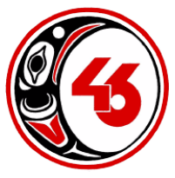Submitted by Chair Amanda Amaral
December 11, 2024
Integrity: Practicing personal responsibility, respect, and honesty.
Our values provide clarity in purpose and guidance in our decision making. Integrity is a value that brings together our commitment to personal responsibility, respect and honesty recognizing that integrity is a daily practice. Each member of our learning community uses the values in their own context. As we implement our new strategic plan and practice our values, here are some reflections on what integrity means to us as a Board.
Personal Responsibility
In our roles as trustees, we are entrusted with the education and well-being of our students and the entire learning community. This responsibility compels us to act thoughtfully, with intention, and to be accountable for our choices. By fostering a culture of personal responsibility, we set an example for our learning community by encouraging them to take ownership of their learning and contributions. We understand that our decisions have far-reaching impacts, and we commit to making choices that reflect our values and the best interests of our community.
Respect
Respect is essential in our interactions with each other, staff, students, and the broader learning community. We heard this many times in our consultation for the strategic plan. By demonstrating respect, we cultivate trust and collaboration, required components for effective governance. We recognize the importance in a diversity of voices, and we are committed to actively listening.
Honesty
Honesty is fundamental to maintaining our credibility and integrity as a Board. We acknowledge that honesty in our decision-making processes is crucial. By being truthful and open, we invite our learning community to engage with us. Honesty also means acknowledging room for growth and learning from our past actions.
As part of the Board’s ongoing commitment to professional growth, we are placing a strong emphasis on governance this year. In November, the Sunshine Coast Board of Education participated in two learning sessions focused on key areas of effective governance, including the roles and responsibilities of trustees, the code of conduct, and strategies for running effective meetings, such as agenda-setting processes. These topics will continue to be explored and integrated into the work of the Board’s committees over the coming year.
Amanda Amaral
Chair

